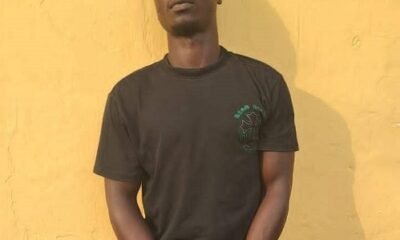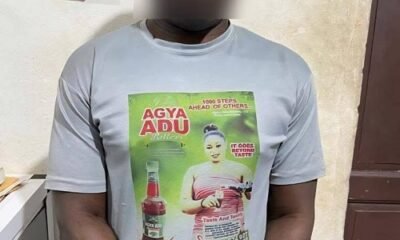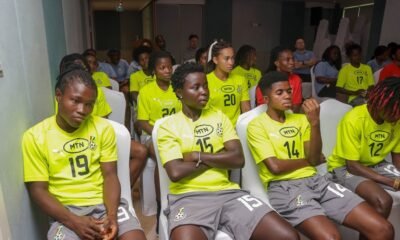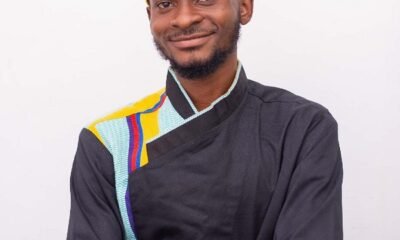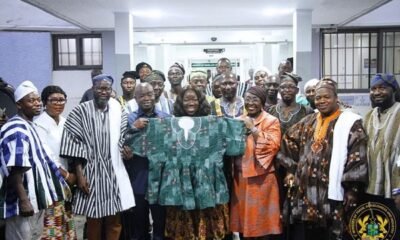News
Ghana is safe; President satisfied with plans to roll out 24-hour economy

The Minister for Government Communications Felix Kwakye Ofosu has briefed the country of the outcome of President John Dramani Mahama’s first Cabinet Meeting.
“Ghana is Safe. The President has been fully briefed on the state of the economy and is satisfied with policy proposals to address the challenges. He has also been appraised on work done so far to roll out the 24-hour economy policy”, Minister for Government Communications Felix Kwakye Ofosu has revealed during the briefing.
Addressing the presidential press corps after the cabinet’s first meeting on Thursday, Mr Kwakye Ofosu said President John Mahama would appraise Ghanaians on the true state of the economy, which is worse than anticipated, when he presents the State of the Nation Address to Parliament next week.
According to the Minister, the cabinet was briefed on plans to “fully roll out President Mahama’s foremost policy towards transforming Ghana: the 24-hour economy.”
Minister for Finance, Dr Ato Forson, also told the cabinet that the economic situation is dire “and the numbers are even worse than we had known before the elections”, Mr Kwakye Ofosu emphasised.
He announced that more details on the economy and policies to reset will be discussed at the National Economic Dialogue slated for the 3rd and 4th of March 2025.
Various experts and stakeholders drawn from academia, civil society organisations, public servants, and other interested parties will discuss the economy and make recommendations that will be factored into the 2025 budget statement, which will be presented to Parliament on March 11
News
Man sentenced to 25 years for robbery at Manso Akwasiso

A 30-year-old man has been sentenced to 25 years imprisonment with hard labour by the Bekwai Circuit Court for his role in a 2022 robbery at a mining site at Manso Akwasiso in the Ashanti South Region.
The convict, Dominic Ofori, also known as Fanta, was arrested on 16th February 2026 after years on the run. He pleaded guilty before the Bekwai Circuit Court to robbery contrary to Section 149 of the Criminal Offences Act, 1960 Act 29, and was accordingly sentenced to 25 years imprisonment with hard labour.
On March 20, 2022, the Manso Adubia District Police received intelligence that a group of armed men from Manso Abodom were planning to attack a mining site at Manso Akwasiso to rob the owner of gold concentrate. Acting on the information, police mounted a coordinated operation and laid an ambush at the site.
At about 5:30 pm the same day, four-armed men arrived at the site, fired indiscriminately, and robbed the miners of their gold concentrate. The police team on surveillance intervened, resulting in an exchange of gunfire.
Three of the suspects, Abu Abubakar, Musah Latif, and Gideon Takyi, sustained gunshot wounds and were pronounced dead on arrival at St Martins Catholic Hospital at Agroyesum. Dominic Ofori escaped at the time but was later arrested and put before the court.
The Ashanti South Regional Police Command has assured the public of its continued commitment to combating violent crimes and bringing offenders to justice.
News
Ashanti police arrest man for publishing false news on TikTok

The Ashanti Regional Police Command has arrested 45-year-old Isaac Boafo, also known as “Duabo King,” for allegedly publishing false news intended to cause fear and panic.
Police said the arrest follows a viral TikTok video in which Boafo claimed that four officers at the Central Police Station in Kumasi engaged in inappropriate conduct with commercial sex workers during night patrols in Asafo.
Officers from the Police Intelligence Directorate (Ashanti Region) apprehended Boafo after receiving intelligence about the video.
During questioning, he admitted to creating the video to attract views and engagement online, and acknowledged that he could not prove the allegations.
Boafo also admitted making comments about the President of the Republic for content purposes and could not defend those statements.
He has been formally charged and is in detention as investigations continue.
The Ashanti Regional Police have warned the public against publishing or sharing false information on social media, noting that such acts can cause fear, panic, and damage reputations.
They said anyone found engaging in similar conduct will face legal action.
By: Jacob Aggrey

